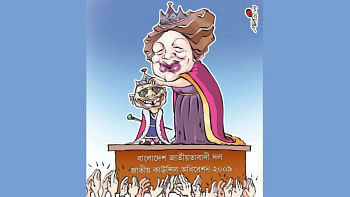Long COVID syndrome: tips for recovery

Mr Ahamed Noor 65 year's old gentleman recovered from COVID-19 four weeks ago, while Coronavirus symptoms passed quickly but now-a-days Mr Ahamed feels fatigue, tiredness and often forgets ordinary issues. His family is thinking and growing concern about the other suffering issues that might follow.
Research shows that some people are suffering long-term effects after COVID-19. Post-COVID conditions are a wide range of new, returning, or ongoing health problems people can experience more than four weeks after first being infected with the virus that causes COVID-19. Even people who did not have symptoms when they were infected can have post-COVID conditions; can have different types and combinations of health problems for different lengths of time.
What is long COVID syndrome?
The National Institute for Health and Care Excellence (NICE) defines long COVID as lasting for more than 12 weeks, although some people consider symptoms that last more than eight weeks to be long COVID.
Long COVID can happen to anyone who has had COVID-19, even if the illness was mild, or they had no symptoms. People with long COVID report experiencing different combinations of the symptoms of tiredness or fatigue, difficulty thinking or concentrating (sometimes referred to as "brain fog"), headache, loss of smell or taste, dizziness on standing, fast-beating or pounding heart (also known as heart palpitations), non-specific chest pain, difficulty breathing or shortness of breath, cough, joint or muscle pain, depression or anxiety, fever, symptoms that get worse after physical or mental activities. Multiorgan effects can affect most body systems including heart, lung, kidney, skin, and brain functions.
Management of long COVID syndrome: There are ways to help manage post-COVID conditions, and many patients with these symptoms are getting better with time. If anyone experiences such symptoms or post-COVID condition need to talk to healthcare provider about options for managing or treating ongoing symptoms. The management can be divided in the way of –
A. Medical management: symptomatic treatments of condition.
B. Rehabilitation management: Physical therapy and post COVID rehabilitation play very significant role in progression of condition and improve quality of life through pulmonary rehabilitation, Neurological rehabilitation, musculo-skeletal pain management and therapeutic designed exercise.
C. Self-management: It includes diet, sleep, rest and relaxation, quitting smoking, self-pacing and gradual increase in exercise tolerance.
D. Mental health and wellbeing: Mental health have emphasised individual reactions to the pandemic such as anxiety, stress, and conditions related to broken routines, loneliness, and social isolation in uninfected individuals. World Health Organisation suggests that post-acute COVID-19 is often associated with low mood, hopelessness, heightened anxiety, and difficulty sleeping.
The writer is the Head of Outpatient Services at Proyash, Dhaka Cantonment.Email: [email protected]

 For all latest news, follow The Daily Star's Google News channel.
For all latest news, follow The Daily Star's Google News channel. 



Comments